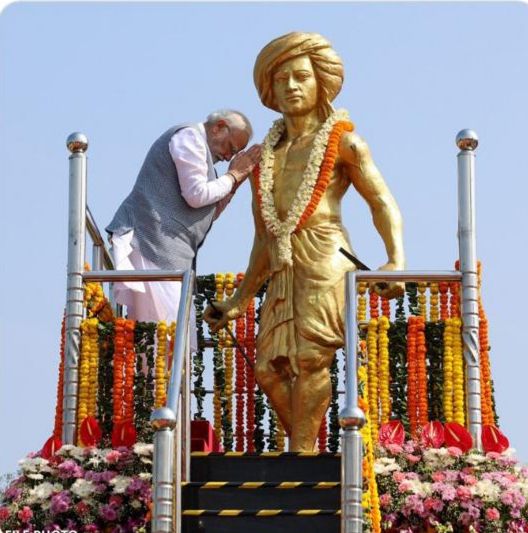
Birsa Munda Punyatithi is observed every year on June 9 to commemorate the death anniversary of Birsa Munda, one of India’s most revered tribal freedom fighters and social reformers.
No difference this year when a number of his followers including President Droupadi Murmu,Prime Minister Narendra Modi and Chief Minister Hemant Soren and his followers Birsaites paid tributes to him on his 125th death anniversary, also known as ‘Balidan Diwas’.
PM Modi recalled his life as a symbol of courage, sacrifice, and commitment to tribal welfare and national pride.
Taking to X, the Prime Minister said, “Respectful tribute to the great hero of the freedom struggle Bhagwan Birsa Munda ji on his Balidan Diwas. He dedicated his life to the welfare of the tribal brothers and sisters and to protecting their rights. His sacrifice and dedication will always inspire the countrymen.”
Historically, he has left behind plenty of evidences showing his velour against exploiters of tribals - land grabbers, British rulers, Church. He played a crucial role in challenging British colonial rule and protecting the rights, culture, and land of tribal communities, particularly in Khunti area of Jharkhand.
He had a large group of followers who are identified as Birsaites.They led a movement, also known as the Ulgulan, a rebellion against British rule and the oppression of the Munda people.
Birsaites were just a an army of their revolutionary leader who not only worked as a social reformer, but challenged the influence of missionaries, landlords, and the colonial state.
Preached by Birsa Munda, these
Birsaites followed specific religious practices, including abstaining from non-vegetarian food, wearing a sacred thread, and not working on Thursdays (Birsa's birthday). They continue to do so till date though their number has dwindled.
In any case, Birsa Munda's legacy is honored through various memorials, including statues and the declaration of his birth anniversary as a national holiday.
Many tribal leaders in Jharkhand consider his as “ Bhagwan” mainly because Birsa Munda's fight against oppression and his vision of social justice continue to inspire tribal communities in their struggles against contemporary issues, such as land rights and resource exploitation.